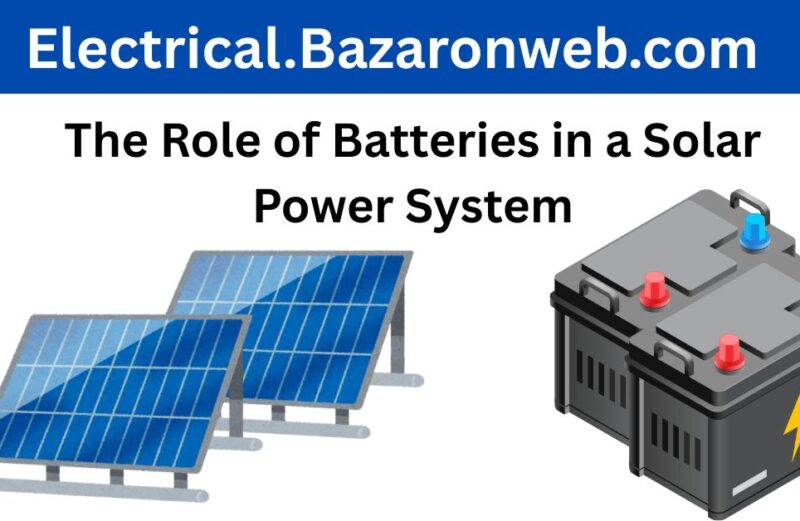By Sudeep Srivastava – Electrical Engineer with 25+ Years of EPC Experience
Batteries are used to store electrical energy for later use. In a solar power system, they play a critical role in ensuring energy availability even when the sun isn’t shining—such as during the night or cloudy days.
The capacity of a battery is measured in Ampere-hours (Ah), which indicates how much current a battery can supply over a specific period. For example, a 150Ah battery can deliver 150 Amperes for one hour or 15 Amperes for 10 hours.
Why Are Batteries Important in Solar Systems?
In my 25+ years of working across residential and commercial solar installations in Lucknow and surrounding areas, I’ve seen how batteries can transform a basic solar system into a reliable and independent power solution.
Here’s how:
1. Energy Backup
Batteries store excess solar energy generated during the day. When the grid fails or sunlight is not available, stored energy powers your home or business.
This is especially crucial in regions with frequent power outages, where uninterrupted electricity is needed for essential services like lighting, medical equipment, or security systems.
2. Energy Independence
With a well-sized battery system, many homes and small businesses can operate off-grid or with minimal dependence on the grid, reducing monthly electricity bills and vulnerability to rising energy costs.
3. Peak Load Management
Batteries can supply energy during peak consumption hours, helping avoid higher electricity tariffs and reducing the load on the grid.
Types of Batteries Commonly Used in Solar Systems
1. Lead-Acid Batteries
- Pros: Affordable and widely available.
- Cons: Shorter lifespan, require regular maintenance.
- Common Use: Most popular for home systems in semi-urban and rural areas.
2. Lithium-ion Batteries
- Pros: Longer lifespan, compact, fast charging, and low maintenance.
- Cons: Higher upfront cost.
- Common Use: Increasingly popular in modern, urban solar systems.
Key Considerations for Choosing a Solar Battery
When designing systems for clients in areas like Aliganj, Gomti Nagar, or nearby towns, I always emphasize:
- Daily energy usage
- Backup duration needed
- System voltage compatibility
- Battery cycle life
- Available space and ventilation
Conclusion
A solar power system with a battery is not just a backup—it’s a step toward energy independence and reliability. Whether you’re a homeowner looking to secure your energy needs or a commercial unit planning for power stability, a well-integrated battery system can offer peace of mind and significant savings.
As solar technology continues to evolve, battery storage is becoming more efficient, affordable, and indispensable in every solar installation.
Written by Sudeep Srivastava
Electrical Engineer | EPC Consultant | Solar Plant Expert – Uttar Pradesh

